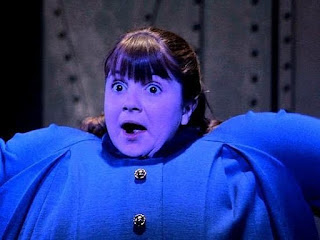Some reflections on life in these strange new times from someone who's lived through a few of her own
____________________________________________________
 |
| You can buy one of Hicks' books by clicking on the links throughout this post. |
These are my thoughts and feelings; this is my experience. Take what you like and leave the rest. I mean no judgment on you or your beliefs. This is just what works for me.
In Part 1 I talked about my grandparents, who raised me, and how their generation survived not only the Spanish Influenza, but the Great Depression and two World Wars—without Zoom meetings, cell phones, social media, Netflix, drive-by birthdays, or anything else that's helping us get through "these difficult times".
Sure, it's easy to wax nostalgic and think the entire country was united around the leaders of the day, everyone working together for the common good, but that would be too perfect. Yes, there was opposition, but it wasn't screaming in your face in real time, 24/7/365. Many people were simply too busy trying to survive.
 |
| Violet from Willy Wonka and the Chocolate Factory |
I have a big button. And I've allowed it to be pushed pretty hard over the years. Politics, war, injustice, Taylor Ham vs. pork roll (it's a Jersey thing)—you name it, I can sound off on it. And the more I react, the bigger the button, the easier it is to push, and the more stress, anxiety and fear grow inside me.
There's a lot going on right now that is so tempting to dive into, and boy-oh-boy have I dove! But, what has it gotten me? Nuthin. Oh sure, it feels really good in the moment when I'm tweeting snarky remarks at politicians or proving my moral certitude to Internet trolls. But what does it do for my overall health and well-being? For the greater good? What energy am I sending out to my little corner of the universe? That I am afraid. I'm stuck in the vicious cycle of fear and my negative reaction to fear, which produces more fear. I'm stuck in what Buddhism calls Samsara, the infinitely repeating cycle of birth, misery, and death.
We all have a button. It doesn't have to be something as all-encompassing as the state of the world right now. It could be your neighbor who doesn't pick up after their dog, your overly-critical boss, a family member or that noise your car keeps making that you have no money to fix. Whatever it is, your reaction to it either increases or decreases the size of your button and your overall emotional state. And it does something else: because you're generating so much negative energy, negative energy finds its way to you.
So, what to do? Start by acknowledging its existence. All that energy is there for a reason. What's it trying to say to you? What does it want from you? Why do these persons, places or things set you off? What if it was turned around to positive energy? What could you do with that? I grew up in a very dysfunctional and sometimes dangerous household. When things got really loud and scary, I shut down emotionally and hide—completely normal reactions for a child. But as an adult, I reacted that way to situations that were adverse, but weren't necessarily life threatening, because my ten-year-old mind was still running the show. I had to acknowledge all the hard work that kid did to keep me alive, and I had to let her know she didn't have to be in charge anymore. However, that little girl taught me an invaluable skill: how to calmly walk away from certain highly-charged situations. It's a skill for which I'm eternally grateful.
This doesn't mean that I don't get angry. Far from it! I'm a human being, and I care deeply about what's happening in the world right now. It's how I choose to react that keeps my button from growing. So, here's what I'm practicing:
- Limiting my exposure to televised news. I read more than I watch.
- Disengaging with people on social media who are clearly button-pushers. That doesn't mean that I won't point out a factual error or a flaw in thinking, but it does mean that I won't react in ways that increase the size of my button, especially because there are people out there who get paid to push it! And if the conversation gets too heated, I can choose to walk away. Remember, it's the second person who starts an argument.
- Breathing. It's a simple, involuntary act that is so important in keeping us calm and centered. I do a simple breathing meditation first thing in the morning, and if I feel anxiety coming on, I stop what I'm doing, close my eyes and breathe into the feelings until they subside. There are so many great breathing meditations out there. Find one that works for you.
- Praying for people with whom I disagree or whose words or actions have caused pain or suffering. I'm not religious, but I do believe in a power greater than ourselves, and that sending good thoughts about someone into the universe can help them and me. Every great religion and spiritual teacher espouses love for all mankind as the fundamental goal of humanity. It's not easy, but I've found it to be very healing.

